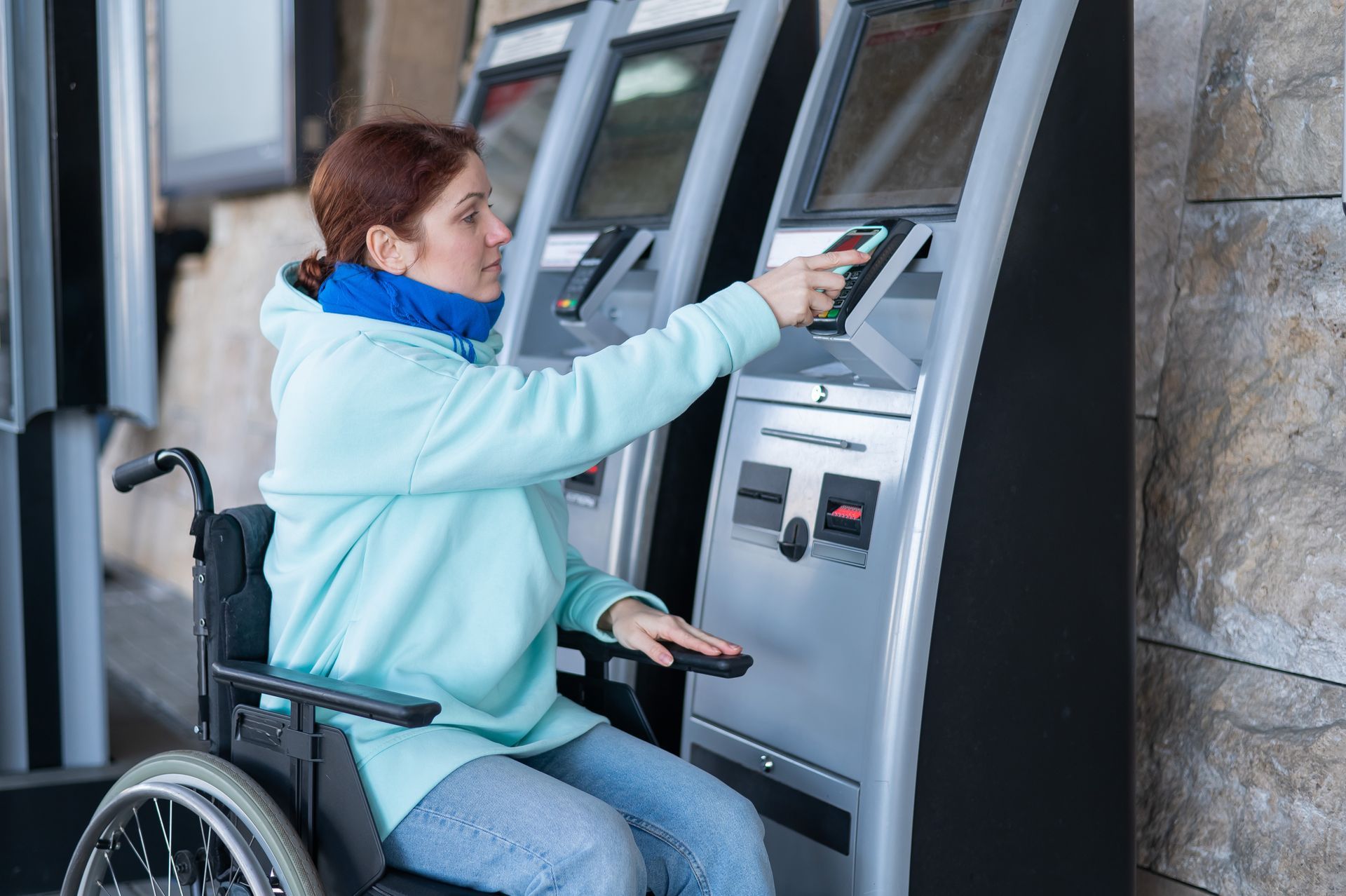The Future of UK Rail Ticket Office Closures: A Double-Edged Sword for Passengers with Alternative Access Needs

By Philip Francis Anderson, Activist and Podcast Host, Campaigning for Change.
Navigating the Tracks of Change: How UK Rail Ticket Office Closures Could Be a Blessing and a Curse for Passengers with Special Access Needs
Introduction
The UK's rail network is on the brink of a major transformation as discussions about the future of ticket office closures gather pace. The proposed closures come with the intent of saving money, streamlining operations, and catering to the changing needs of passengers, as an increasing number prefer digital ticketing options. However, while these closures may be advantageous in some respects, they raise serious concerns about the accessibility and assistance provided to passengers with alternative access needs. In this blog post, we explore the pros and cons of this decision and its potential impact on a significant portion of the rail passenger community.

Pros of Ticket Office Closures
1. Cost Savings
One of the primary reasons for considering ticket office closures is to reduce operational costs. Maintaining physical ticket offices incurs expenses related to staffing, infrastructure, and utilities. By consolidating resources, rail operators can reallocate funds to improve other aspects of the travel experience, such as upgrading facilities and investing in technology.
2. Digital Transformation
With the advent of online booking platforms and ticket machines, there has been a significant shift in passenger behaviour. A substantial portion of passengers now prefer the convenience of purchasing tickets digitally, which has led to a decline in the usage of traditional ticket offices. Embracing this digital transformation can enhance efficiency and reduce long queues at stations, providing a smoother travel experience for many passengers.
3. Improved Efficiency
By focusing on digital and self-service ticketing options, rail operators can streamline ticketing processes and reduce waiting times. This can lead to more efficient operations and improved overall customer satisfaction.
Cons of Ticket Office Closures

1. Exclusion of Vulnerable Passengers
The closure of ticket offices could lead to the exclusion of passengers with alternative access needs, including elderly individuals, people with disabilities, and those who face language barriers. These passengers may rely on ticket office staff to provide personalised assistance and ensure a safe and comfortable journey. Closing ticket offices without an adequate alternative solution could leave them struggling to navigate the complex ticketing systems.
2. Accessibility Challenges
While digital ticketing options may work well for tech-savvy travellers, they can be problematic for those unfamiliar with technology or who have visual impairments. The move towards digitalisation could inadvertently widen the accessibility gap and create barriers for certain passenger groups.
3. Potential Job Losses
The closure of ticket offices will inevitably lead to job losses for ticket office staff. These employees, who often possess valuable expertise and customer service skills, may find it challenging to secure new roles within the rail industry or may need to transition to different sectors altogether. This loss of experienced staff can negatively impact customer service quality across the entire rail network.

Addressing the Consequences
While there are compelling arguments for both sides of the ticket office closure debate, it is essential to ensure that passengers with alternative access needs are not left behind. Rail operators must take proactive steps to address the potential consequences:
1. Comprehensive Consultation
Rail operators should conduct thorough consultations with passenger groups, disability advocates, and staff representatives to understand the specific needs and challenges faced by those with alternative access needs. This input will help shape appropriate solutions and alternatives. You can add your voice to the "Rail Delivery Group Consultation" by contacting Transport Focus or visiting their website.
2. Enhanced Digital Accessibility
Investing in user-friendly digital ticketing platforms with accessibility features is crucial to cater to a diverse range of passengers. Providing options for voice commands, screen readers, and clear instructions can make the digital ticketing experience more inclusive.
3. Assisted Travel Support
Establishing dedicated assistance points or trained personnel at stations can bridge the gap left by ticket office closures. These points can provide personalised support to passengers with alternative access needs, ensuring they receive the assistance required to navigate the rail system comfortably.
Conclusion
The impending closure of UK rail ticket offices is a complex issue that requires a delicate balance between cost-saving measures and providing a seamless travel experience for all passengers, especially those with alternative access needs. Embracing digitalisation and self-service options can undoubtedly improve efficiency and convenience, but rail operators must take proactive steps to address the potential impact on vulnerable passenger groups. By fostering collaboration, embracing accessibility and ensuring support for affected staff, the rail industry can shape a future that accommodates the evolving needs of all passengers.
Remember, you can contribute your voice to the "Rail Delivery Group Consultation" by contacting Transport Focus or
visiting their website. Let's ensure that the future of UK rail travel is both progressive and inclusive.
Comments Welcome!
To leave a general comment, feedback about a post, or even recommendations for a topic to cover, please just fill out this form. For those who would prefer to send their comment in using audio, there is the additional option to upload an audio file.
Contact Us
In line with GDPR, only complete this form if you are happy for me to use your answers for the purposes of processing of your request and in all
corresponding communications thereafter. Read my Privacy Policy for more information on how I manage your personal data. This contact form is also protected by reCAPTCHA, a Google system. Google's Privacy Policy and Terms of Service apply and are available to read when using the reCAPTCHA tool.

